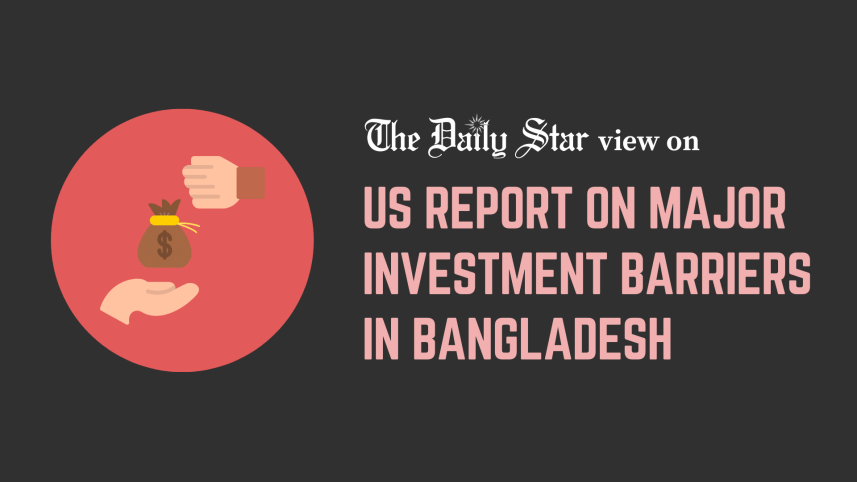What’s discouraging our foreign investors?

It is a matter of great concern that Bangladesh has failed to attract its targeted level of foreign direct investment over the years, with FDI inflow amounting to only 0.75 percent of its GDP in 2023, according to UNCTAD's World Investment Report. Efforts to attract foreign investors by developing economic zones and adopting one-stop services have not yielded the desired results, begging the question: what is the country doing wrong? A recent report by the US administration has identified precisely what's holding us back—corruption, bureaucracy, anti-competitive procurement system, and violation of intellectual property rights, among other barriers.
According to the findings of the United States Trade Representative (USTR) in its 2024 National Trade Estimate Report on Foreign Trade Barriers, corruption remains deeply ingrained in Bangladesh's commercial environment. This is partly because enforcement of relevant legislative measures, including the Code of Criminal Procedure and the Prevention of Corruption Act, remains lax, allowing corrupt practices to thrive. US investors have voiced concerns over the undue delays and bureaucratic hurdles they face, with government officials demanding bribes in exchange for license approvals and bid clearances.
Efforts to undermine the independence of the Anti-Corruption Commission (ACC) through legislation such as the Sarkari Chakori Ain Bill—which limits its ability to investigate corruption allegations against government officials effectively—only exacerbate the problem. Adding to that is the backlog of unresolved corruption cases and systematic attempts to dilute anti-government safeguards in procurement processes.
The US report also highlights the lack of transparency and fairness in public procurement, with allegations of bid rigging, favouritism towards local partners, and insufficient adherence to international competitive bidding standards. In addition, it points out deficiencies in Bangladesh's legislative and rulemaking processes, particularly concerning patent law, copyright amendments, and enactment of the Industrial Design Act. Meanwhile, the proposed Personal Data Protection Act and regulations for Digital, Social Media, and Over the Top Platforms pose potential threats to privacy and freedom of expression, raising apprehensions among international investors.
These challenges need to be taken seriously by our policymakers, as cosmetic incentives to foreign investors can only work for so long. For Bangladesh to unlock its full economic potential and foster a conducive environment for foreign investment and sustainable growth, the pernicious problems discouraging investors must be addressed. This will require concerned effort from the government, but first, there must be the political will to tackle entrenched corruption and bureaucratic inefficiencies. Meanwhile, the government needs to make serious improvements to the country's Intellectual Property (IP) regime, ensuring better coordination among enforcement authorities and government institutions, and move away from repressive regulatory frameworks for data protection and online content regulation.



 For all latest news, follow The Daily Star's Google News channel.
For all latest news, follow The Daily Star's Google News channel. 



Comments